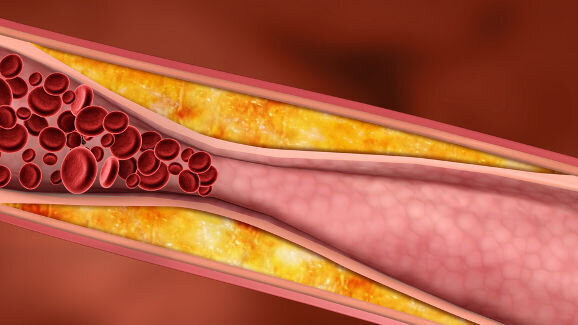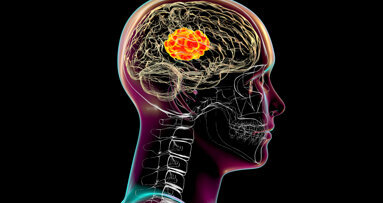DUBLIN, Ireland: Oral bacteria that escape into the bloodstream are able to cause blood clots and trigger life-threatening endocarditis, researchers from the Royal College of Surgeons in Ireland (RCSI) and the University of Bristol have discovered. Further research into this topic could lead to the development of new drugs to combat infective heart disease.
The researchers’ findings were presented at the Society for General Microbiology’s spring conference in Dublin last week.
Streptococcus gordonii is a common inhabitant of the mouth and contributes to plaque that forms on the surface of teeth. These bacteria can enter into the bloodstream through bleeding gums and start to wreak havoc by masquerading as human proteins.
The researchers discovered that S. gordonii is able to produce a molecule on its surface that allows it to mimic the human protein fibrinogen—a blood-clotting factor. This activates the platelets, causing them to clump inside blood vessels. These unwanted blood clots encase the bacteria, protecting them from the immune system and from antibiotics used to treat infection. Platelet clumping can lead to growths on the heart valves (endocarditis), or inflammation of blood vessels that can block the blood supply to the heart or brain.
Dr Helen Petersen, clinical lecturer at the Department of Oral and Maxillofacial Surgery at the London UCL Eastman Dental Institute, presented the findings. She stated that better understanding of the relationship between bacteria and platelets could ultimately lead to new treatments for infective endocarditis. “In the development of infective endocarditis, a crucial step is the bacteria sticking to the heart valve and then activating platelets to form a clot. We are now looking at the mechanism behind this sequence of events in the hope that we can develop new drugs which are needed to prevent blood clots and also infective endocarditis,” Petersen said.
Infective endocarditis is treated with surgery or strong antibiotics, which is becoming more difficult with growing antibiotic resistance. “About 30 per cent of people with infective endocarditis die and most will require surgery for replacement of the infected heart valve with a metal or animal valve,” according to Petersen.
Dr Steve Kerrigan from the RCSI commented: “Our team has now identified the critical components of the S. gordonii molecule that mimics fibrinogen, so we are getting closer to being able to design new compounds to inhibit it. This would prevent the stimulation of unwanted blood clots.”
The team is also trying to determine how widespread this phenomenon is by studying other bacteria related to S. gordonii.
PLYMOUTH, UK: In a recent study, researchers investigated the role of oral bacteria in the development of brain abscesses. They found that the samples of ...
SHEFFIELD, UK: Infective endocarditis (IE) is a potentially life-threatening heart infection that is caused by dental bacteria in around a third of cases. A...
SHEFFIELD, UK: Scientists at the University of Sheffield have identified a significant rise in the number of people diagnosed with a serious heart infection...
LONDON, UK: Earlier this year, researchers from the University of Sheffield confirmed that dental patients at high risk of infective endocarditis (IE) ...
BARCELONA, Spain/YORK & LEICESTER, UK/TEL AVIV, Israel: An international team of researchers has conducted a study that gives striking insights into the...
DUNDEE, Scotland: As the global health community marks World Mental Health Day today, the dental profession is being urged to confront a pressing concern ...
YORK, UK: Perhaps unfairly, the teeth of Britons have developed an international reputation for being crooked and aesthetically subpar. Researchers have ...
BRISTOL, UK: When oral bacteria spread to other tissues via the bloodstream, the results can be catastrophic. Researchers have now discovered a potentially ...
SHEFFIELD, UK: According to British scientists, the dentition of puffer fish could provide a new model for understanding the genetic processes underlying ...
LONDON, UK: A new method of detecting bacteria during root canal therapy could eradicate the need for follow-up appointments and prevent treatment failure, ...
Live webinar
Tue. 24 February 2026
6:00 pm UTC (London)
Prof. Dr. Markus B. Hürzeler
Live webinar
Tue. 24 February 2026
8:00 pm UTC (London)
Prof. Dr. Marcel A. Wainwright DDS, PhD
Live webinar
Wed. 25 February 2026
4:00 pm UTC (London)
Prof. Dr. Daniel Edelhoff
Live webinar
Wed. 25 February 2026
6:00 pm UTC (London)
Live webinar
Thu. 26 February 2026
1:00 am UTC (London)
Live webinar
Tue. 3 March 2026
4:00 pm UTC (London)
Dr. Omar Lugo Cirujano Maxilofacial
Live webinar
Wed. 4 March 2026
1:00 am UTC (London)
Dr. Vasiliki Maseli DDS, MS, EdM



 Austria / Österreich
Austria / Österreich
 Bosnia and Herzegovina / Босна и Херцеговина
Bosnia and Herzegovina / Босна и Херцеговина
 Bulgaria / България
Bulgaria / България
 Croatia / Hrvatska
Croatia / Hrvatska
 Czech Republic & Slovakia / Česká republika & Slovensko
Czech Republic & Slovakia / Česká republika & Slovensko
 France / France
France / France
 Germany / Deutschland
Germany / Deutschland
 Greece / ΕΛΛΑΔΑ
Greece / ΕΛΛΑΔΑ
 Hungary / Hungary
Hungary / Hungary
 Italy / Italia
Italy / Italia
 Netherlands / Nederland
Netherlands / Nederland
 Nordic / Nordic
Nordic / Nordic
 Poland / Polska
Poland / Polska
 Portugal / Portugal
Portugal / Portugal
 Romania & Moldova / România & Moldova
Romania & Moldova / România & Moldova
 Slovenia / Slovenija
Slovenia / Slovenija
 Serbia & Montenegro / Србија и Црна Гора
Serbia & Montenegro / Србија и Црна Гора
 Spain / España
Spain / España
 Switzerland / Schweiz
Switzerland / Schweiz
 Turkey / Türkiye
Turkey / Türkiye
 UK & Ireland / UK & Ireland
UK & Ireland / UK & Ireland
 International / International
International / International
 Brazil / Brasil
Brazil / Brasil
 Canada / Canada
Canada / Canada
 Latin America / Latinoamérica
Latin America / Latinoamérica
 USA / USA
USA / USA
 China / 中国
China / 中国
 India / भारत गणराज्य
India / भारत गणराज्य
 Pakistan / Pākistān
Pakistan / Pākistān
 Vietnam / Việt Nam
Vietnam / Việt Nam
 ASEAN / ASEAN
ASEAN / ASEAN
 Israel / מְדִינַת יִשְׂרָאֵל
Israel / מְדִינַת יִשְׂרָאֵל
 Algeria, Morocco & Tunisia / الجزائر والمغرب وتونس
Algeria, Morocco & Tunisia / الجزائر والمغرب وتونس
 Middle East / Middle East
Middle East / Middle East


















































To post a reply please login or register